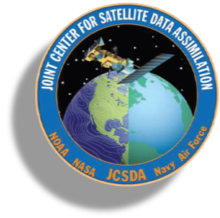The Polarized Submillimeter Ice-Cloud Radiometer (PolSIR) is an upcoming NASA satellite mission scheduled for launch in 2027, designed to study the elusive role of ice clouds in Earth’s weather system. PolSIR will delve into how ice clouds influence and transform weather patterns globally. This dual-satellite mission will orbit the tropics and sub-tropics, continuing its observations until 2030.
In support of this innovative satellite mission, the PolSIR sensor will be simulated by the Community Radiative Transfer Model (CRTM). The development of this capability through the JCSDA CRTM team will enable satellite data assimilation of PolSIR data and proxy data to better understand the numerical weather prediction impacts of the sensor’s observations.
A new component developed specifically for the CRTM will allow simulations to evaluate different spectral channel combinations and their sensitivity to key atmospheric parameters. These simulations aim to produce highly accurate maps of radiance influenced by cloud and precipitation particles, enriching our understanding of ice clouds' behavior over various time scales and on a nearly global scale. The PolSIR team will be able to make use of these accurate simulations in the pre-launch development and testing of cloud and precipitation retrieval algorithms.
Key scientific goals of the PolSIR mission include measuring the amplitude and timing of the diurnal cycle of the ice water path, assessing the diurnal variability of ice clouds in convective outflow regions, and the relationship with deep convection events.
Ultimately, the project is set to transition to operational use within the JEDI Unified Forward Operator (UFO), an integration approach adopted by NASA, NOAA, Navy, and other key JCSDA partners. This will ensure that the insights gained from PolSIR will directly inform and improve both operational and research models, enhancing our ability to predict and manage the impacts of day-to-day weather, particularly with regard to the critical roles of cloud ice and cloud water.
The PolSIR mission and the JCSDA partnership represent a significant step forward in weather research, ultimately providing access to highly impactful data that will help close critical gaps in our current understanding of the critical role that clouds play in weather, and predictability.
Photo by Julien DI MAJO on Unsplash

